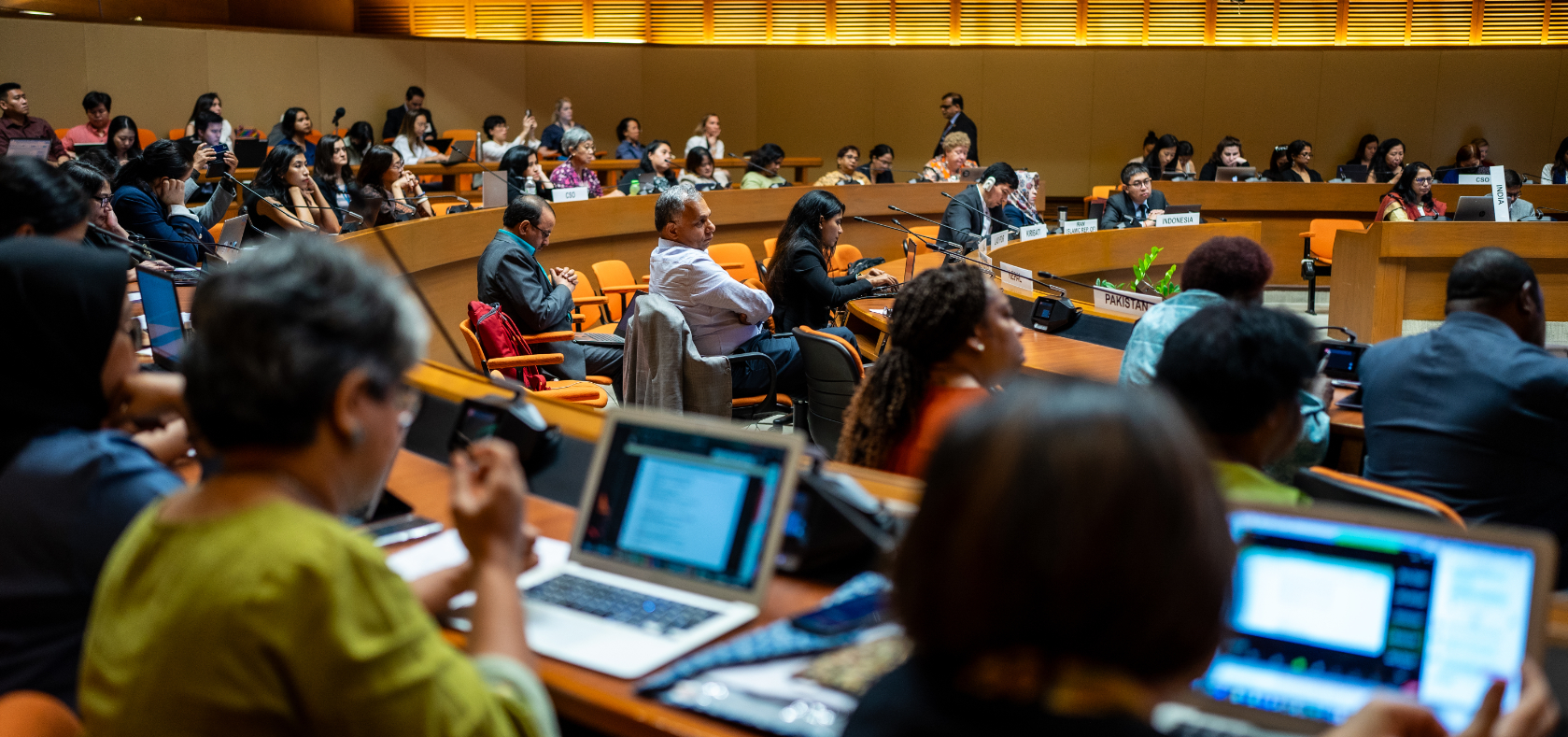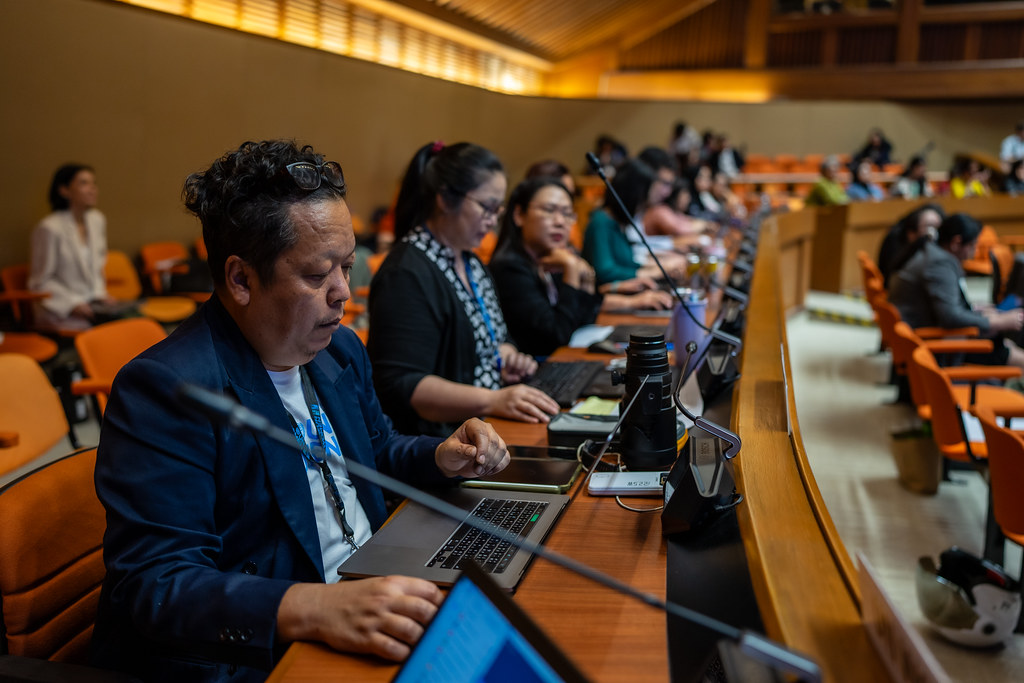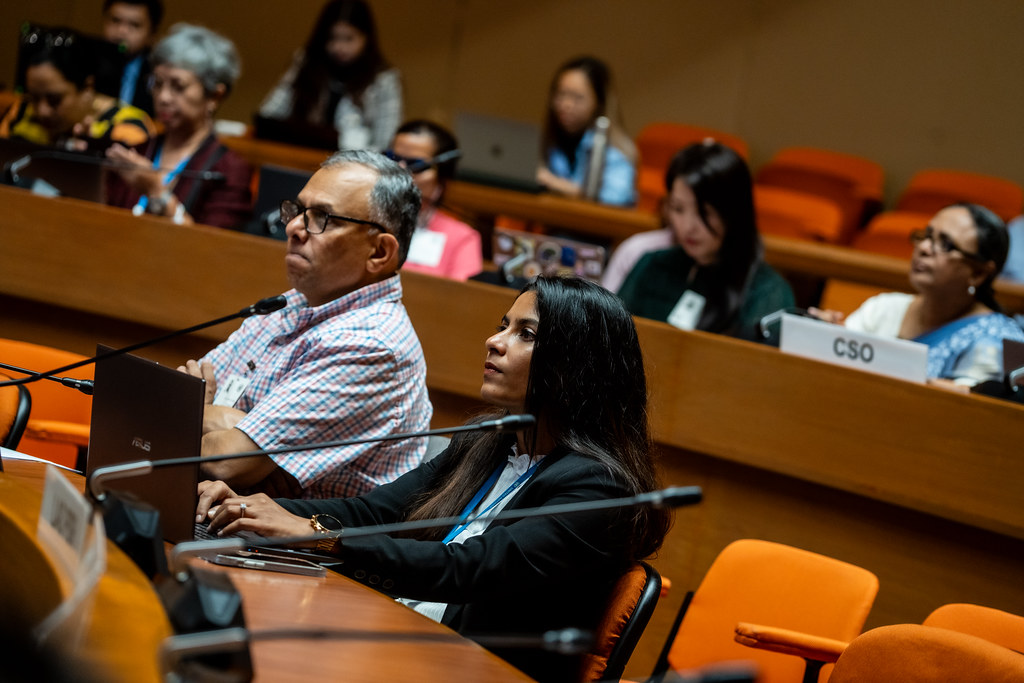Women’s financial inclusion and institutional barriers top the agenda at Asia-Pacific consultation, ahead of CSW68
Date:

“Accelerating the achievement of gender equality and the empowerment of all women and girls by addressing poverty and strengthening institutions and financing with a gender perspective” was the main theme of a consultation held in Bangkok, as part of preparations for the 68th Session of the Commission on the Status of Women (CSW68).
The Asia-Pacific Regional Consultation was jointly convened on 6-7 February by UN Women’s Regional Office for Asia and the Pacific, and the UN Economic and Social Commission for Asia and the Pacific (ESCAP).
Speaking at the event, Alia El-Yassir, Regional Director of UN Women Regional Office for Asia and the Pacific said: “Ending women’s poverty requires strong political will at the national, regional and international levels. It needs sustained investment in a comprehensive set of policies, as well as gender-responsive and accountable institutions.”
“Together, we can forge a path that ensures women and girls are not just included but truly empowered at every level of economic engagement,” said ESCAP Deputy Executive Secretary Lin Yang.
The regional consultation provided an interactive forum for ESCAP member states and key stakeholders in Asia and the Pacific to look at how best to accelerate progress on key frameworks, including the 1995 Beijing Declaration and Platform for Action, the Addis Ababa Action Agenda of the Third International Conference on Financing for Development, and the 2030 Agenda for Sustainable Development.
"By addressing women's poverty, we contribute significantly to uplifting not only their lives but also their families and communities" said Khay Ann Magundayao-Borlado, Deputy Executive Director of the Philippine Commission on Women.
Participants and panellists considered some of the metrics of progress in gender equality at country level, but also some of the common challenges faced across the region.
National delegates presented various metrics from their respective countries showing progress in women’s participation in higher education and the labour force, as well as institutional developments to promote and safeguards the rights of women and girls.
There was general agreement that the economic empowerment of women is key not only to improving their own livelihoods, but also to boosting the whole economy and benefiting wider society.
On the other hand, several speakers underlined that gender challenges were often addressed only in the context of designated policies and programmes. There remains a requirement to mainstream gender considerations into all areas that impact women and girls, from healthcare to business and even environmental policy.
"We urge the Member States to improve public investment in health and develop social protection systems including universal access to health to ensure sexual and reproductive rights for all women and girls, especially the most marginalized," said Methmalie Dissanayake, a Sri Lankan journalist and member of the Asia Pacific Forum on Women, Law and Development Asia, in her statement. She was speaking on behalf of the civil society organizations who convened in the days ahead of the consultation to prepare their own inputs to the process.
The consultation included sessions on mobilizing financing to end women’s poverty and caring, green economies where representatives from governments, development organizations, academia and the civil society presented and discussed best practices and approaches to increase investment in women and girls across Asia and the Pacific.
Participants also discussed the Beijing+30 review process slated for later in 2024 and set to build on the 2019 Asia-Pacific Declaration on Advancing Gender Equality and Women’s Empowerment: Beijing+25 Review. Several national representatives outlined their respective country’s progress towards the targets laid out by the Beijing Declaration and Platform for Action nearly 30 years ago.
The outcome of the Asia-Pacific regional consultation for CSW68 is a set of suggested actions for accelerated progress regarding the Priority Theme. The suggested actions will feed into CSW68 and can inform membership contributions to the Agreed Conclusions.

